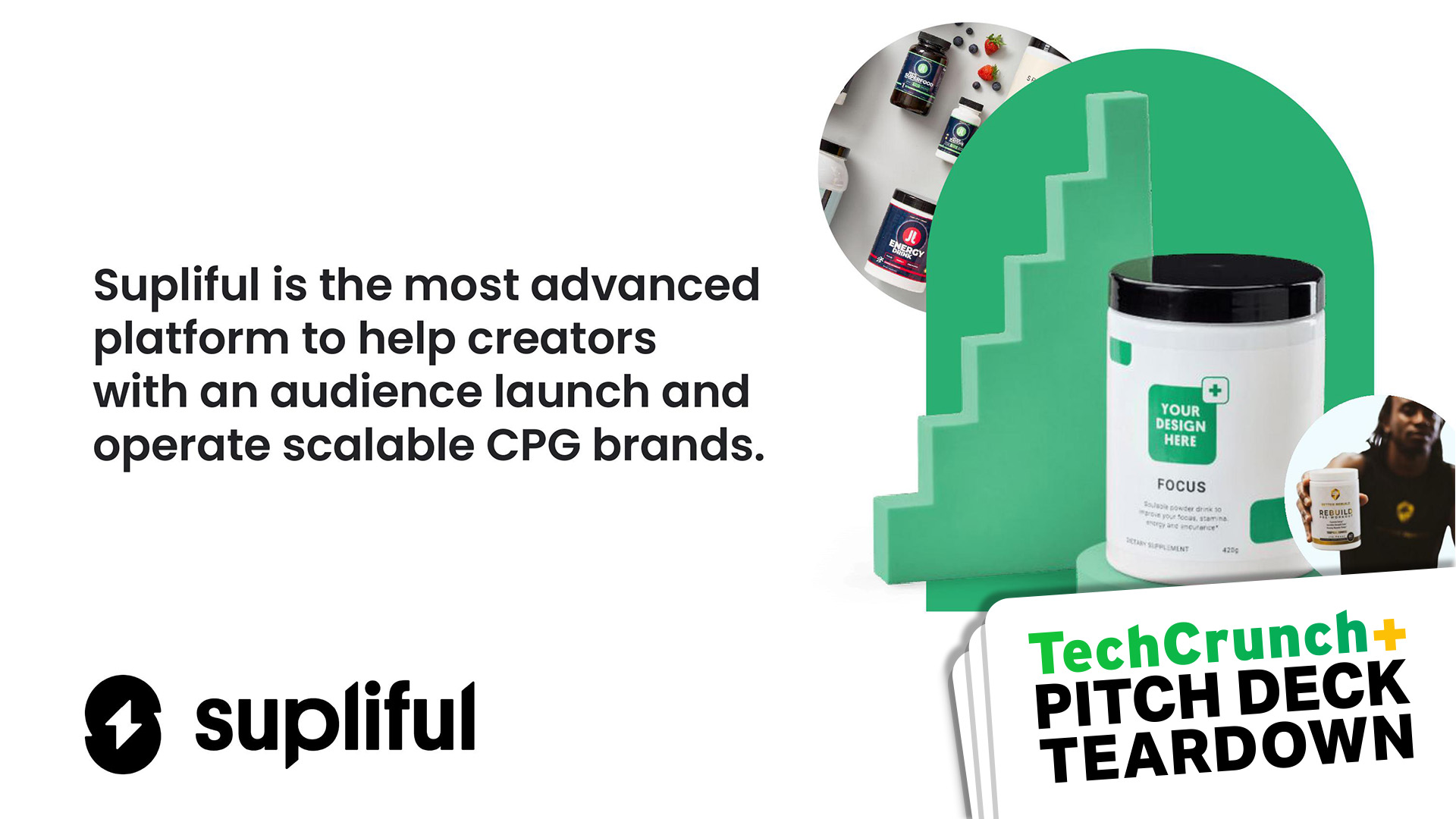Welcome to Startups Weekly, a nuanced take on this week’s startup news and trends by Senior reporter Natasha Mascarenhas.
Startups Weekly readers know I love a pivot story, and now I have one of my own: I’m leaving TechCrunch! This is my last Startups Weekly issue, a newsletter that I’ve written every week for over two years. I’ll be moving on to a new publication, continuing to report on venture capital and startups.
It’s a bittersweet move. I’ve spent most of my post-graduation career at TechCrunch. The publication helped me land many professional firsts: my first scoop, my first long-form feature story, my first valuation-run bull cycle and my first layoffs-ridden bear cycle. I also launched an entire new show for Equity, TC’s flagship podcast, interviewing guests about their hottest takes and career paths. Plus, I interviewed Kevin Hart on the Disrupt stage. Grateful is an understatement.
While this will be my last Startups Weekly, it’s not the end of this newsletter. I’m thrilled to share that Haje Jan Kamps, a longtime reporter and the creator of our amazing Pitch Deck Teardown series, will be taking over Startups Weekly. Haje is one of the reporters I quote most in this newsletter because all of his work fits the “startup must read” category — and his witty headlines don’t hurt, either.
As for who will be covering my beat, TC already has an amazing venture desk, including but not limited to Connie Loizos, Mary Ann Azevedo, Christine Hall, Dominic-Madori Davis and Rebecca Szkutak. Big shout out to Kyle Wiggers, as well, who is fearlessly, and thoughtfully, covering artificial intelligence alongside Devin Coldewey.
In my next role, I’ll be covering the same beat and the same city, focusing on deeply researched feature pieces and scoops. To learn more about where I’m going next, and to follow my work, check out my (free!!!) Substack and stay in touch on Twitter. I’m excited for the new challenge. Tech has never been more newsworthy. Sources, I still would love your tips: My Signal: is 1 925 271 0912.
Now let’s get into a newsletter!
The AI debate
On TC+, I wrote a story about the debate happening inside every venture firm right now: What’s the best way to capture the artificial intelligence zeitgeist?
Here’s an excerpt:
Precursor’s Charles Hudson wants to be cautious but not too cautious. The venture capitalist was one of many at an AI confab last month, but he — and many others — has not yet made a new AI investment during the current hype cycle.
Also like many investors, he’s seen an inflection point take over a sector before, bringing in boatloads of capital, new founders and, at times, speedy and FOMO-driven deals. Historically, Hudson hasn’t minded sitting out. “With crypto, for example, I was OK being at almost zero,” he said. “I don’t think I’m OK with zero as the answer for AI. The question is where and how.”
- OpenAI’s new tool attempts to explain language models’ behaviors
- Mayfield raised just shy of $1B to avoid unicorn hype
- Anthropic thinks ‘constitutional AI’ is the best way to train models

Image Credits: Daniel Grizelj (opens in a new window) / Getty Images
Minting new accelerators
The team behind Better Tomorrow Ventures saw some of its biggest wins before the firm even existed — back when the founding duo was backing pre-seed companies at 500. Now, founding partners Sheel Mohnot and Jake Gibson are launching an accelerator of their own.
Here’s what to know: The Mint will be a three-month accelerator, based out of San Francisco, that cuts $500,000 checks in exchange for 10% equity in between six to 10 startups. The initial cohort, which starts this upcoming August, already accepted one company, and sent a second acceptance letter out today.
Better Tomorrow seems to be stepping in where it believes Y Combinator is lacking. “YC is built for scale. The advice is a lot like one-size-fits-all,” Mohnot said. “We felt like with fintech, there are so many things that are unique about building that it makes sense to have something distinct.”
- AI2 Incubator’s new $30M fund triples down on early stage AI startups
- Higher interest rates are fostering a fintech comeback story
- We’re close to peak pessimism around fintech
Venture-backed everything for real-world problems, please
On Equity this week, the trio chatted through some deals of the week and themes — but the bright spot of the show was most certainly Mary Ann’s coverage of Wellthy. The startup recently raised $25 million to help caregivers feel less overwhelmed through a product it describes as “tech-enabled care concierge.”
Here’s what to know: While the venture ecosystem has certainly rushed to back digital health startups, and mental wellness is growing as a conversation, there is never enough on caretaking specifically.
- Inside the story of one founder’s choice to shut her startup down, and advice for others going forward
- Yeah, tech growth is slowing down
- Despite a rocky start, climate tech is in a good position to tackle the rest of 2023
- And that’s a wrap on my last Equity episode! To Equity listeners, thanks for coming along my entire journey on the show, from jumping on Equity Friday’s to hosting and leading the creation of our Equity Wednesday episodes. I’m so proud of my past three years on the show and can’t wait to now be an avid listener from afar. Much love to all of you, and I hope to win you back whenever I launch a new podcast!

Image Credits: Getty Images
Etc., etc.
- Programming note: If you’re reading this on a browser, get this in your inbox too! Subscribe here and share it with your friends.
- Of course: It’s already Disrupt season. Reminder that there’s a ticket for every budget and role.
- And finally, I have a shameless plug: Scoops make me! If you hear about a venture firm or startup winning, raising, flailing, or, oh I don’t know, booting an executive because of internal happenings, tell me. I love seeing early pitch decks and term sheets too. Happy to talk about anonymity and explain more of my process and what I’m looking for. You can tell me stuff on Signal at +1 925 271 0912. No pitches, please.
Seen on TechCrunch
All Raise’s interim CEO is now full-time
Elon Musk says he has found a new CEO for Twitter
Boxed wine can be bougie with Allison Luvera and Lauren De Niro Pipher from Juliet
Former FTX CEO Sam Bankman-Fried seeks to dismiss most US charges against him
Twitter launches encrypted DMs for verified users with security drawbacks
Seen on TechCrunch+
Pitch Deck Teardown: Fibery’s $5.2M Series A deck
Hidden in plain sight: 5 red flags for investors
Tech workers could take labor lessons from Hollywood’s writers
Ask Sophie: Can I apply for an EB-1A without first getting an O-1A?
It’s been fun. See you on the other side – and hope you stay reading along,
A pivot, in this market‽ by Natasha Mascarenhas originally published on TechCrunch






